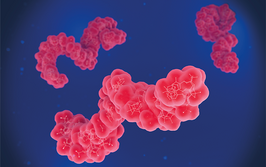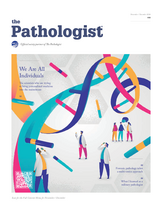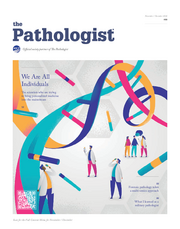I can call to mind one example when the fallibility of panel testing was really highlighted, and that was in a rural Australian mining and farming community with a higher-than-average (1 in 25) population cystic fibrosis (CF) carrier risk. A family physician referred a Caucasian couple to a genetic clinic for prenatal CF counseling. A detailed family pedigree showed CF-affected individuals in the paternal lineage – but according to the couple, the father himself had been “tested for everything, but nothing was found.” Based on this lack of result, the family incorrectly believed that their pregnancy carried zero risk of CF, and that there was no need for concern or maternal testing.
Why was this such a problem? Recent research suggests that there are more than 100 disease-causing CF mutations, but common panels search for only about one-fifth of these.
After reviewing paternal panel testing documentation, a variant of unknown significance was reported. Additional counseling encouraged the mother to proceed with carrier testing – which returned positive for ΔF508, the most common CF mutation. Based on pedigree and testing, the family was advised of a potential 25 percent risk of a CF-affected pregnancy.
This case illustrates the real risk associated with patients’ perception of infallibility in panel testing. Most genetic disorders don’t have reliable testing available – and even in those that do, the test is not an absolute guarantee. Variants of unknown significance, unknown disease-causing mutations, and the preconceptions of non-genetic medical professionals leave significant and potentially harmful gaps. That’s why I’d like all doctors to remember that the family pedigree remains the ultimate and most essential tool in genetic counseling.
Leigh Stott is a Certified Associate Genetic Counsellor, Australasian Society of Genetic Counsellors (ASGC). After eight years of specializing in neurological diseases, he currently serves as a clinical trial manager for ultra-rare genetic diseases in Denver, USA.
Read more
Genetic Panel Testing: Points of View (Steven Ralston)
Genetic Panel Testing: Points of View (Marilyn Bui)
Leigh Stott is a Certified Associate Genetic Counsellor, Australasian Society of Genetic Counsellors (ASGC). After eight years of specializing in neurological diseases, he currently serves as a clinical trial manager for ultra-rare genetic diseases in Denver.




















